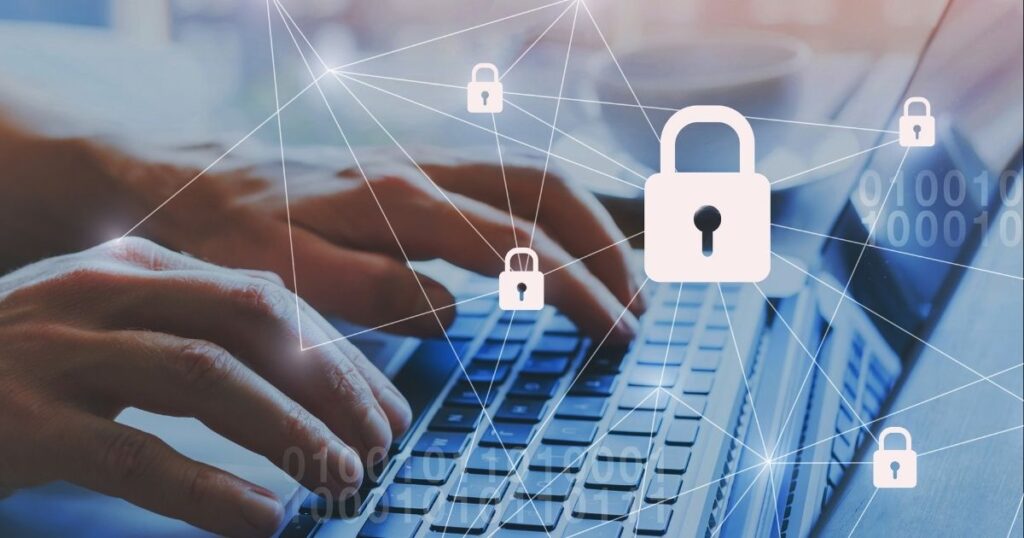Safety First: Shielding Your Data When Using Virtual Assistants securely
6 must-have tips
Using virtual assistants securely requires a combination of best practices, including regularly updating your tools, using strong passwords, enabling multi-factor authentication, encrypting data, avoiding phishing and malware, and staying informed about the latest security trends. Here are some tips on how to apply these practices effectively:
- Regularly Update Your Tools: Regularly checking for updates and installing them as soon as they are available can help keep your virtual assistant tools secure. Updates often include bug fixes, security patches, and performance improvements that can protect your devices and data from cyberattacks. You can either check for updates manually or enable automatic updates for your tools. However, ensure that you backup your data before updating any tool, in case something goes wrong or you need to revert to a previous version.
- Use Strong Passwords: Strong passwords are essential for securing your virtual assistant tools. A strong password should be long, complex, and unique, incorporating a combination of letters, numbers, symbols, and cases. Avoid reusing passwords across different services or platforms. A strong password can help prevent unauthorized access, identity theft, and data breaches. Consider using a password manager to generate and securely store your passwords.
- Enable Multi-factor Authentication: Multi-factor authentication (MFA) adds an extra layer of security to your virtual assistant tools. MFA requires you to verify your identity using more than one factor, such as a password, a code, a fingerprint, or a device, before granting you access. You can enable MFA for your tools by checking their settings or contacting their support teams.
- Encrypt Your Data: Encrypting your data can protect it from being intercepted, modified, or stolen by hackers, malware, or third parties. Encryption converts your data into an unreadable format that can only be decoded with a key or a password. Consider using encryption software, tools, or features, or choosing tools that offer end-to-end encryption for your communications and transactions.
- Avoid Phishing and Malware: Be vigilant about the emails, messages, links, and attachments you receive or open, and use antivirus and firewall software to scan and block potential phishing and malware attacks. Also, consider disabling the email preview feature in your email software to avoid inadvertent activation of malicious software.
- Stay Informed: Educate yourself and your clients about the latest trends, threats, and best practices related to cybersecurity and online safety. This can help build trust, credibility, and confidence as a virtual assistant, and prevent or resolve any issues or conflicts that may arise from using your tools.
In addition to these practices, you can enhance your security by reviewing your privacy policy, knowing how your virtual assistant is connected, periodically reviewing your settings, and segmenting virtual assistants from your larger corporate network.
Finally, consider using a managed virtual assistant service instead of a freelancer or independent contractor. Managed virtual assistant service providers hire, train, and supervise virtual assistants in secure facilities and provide company-issued computers. They are responsible for security and offer robust data security infrastructure, physical, electronic, and human security, providing a comprehensive set of safeguards for client data
Looking to keep your data safe while working with virtual assistants? you’ll find here valuable tips on how to protect your data when working with remote staff. Data security is crucial, especially when trusting someone to represent your brand and giving them access to your sensitive information. This article covers a range of tips, including creating accountability, restricting access levels, using password managers, changing passwords regularly, and enabling two-factor authentication. By prioritizing data security, businesses of all sizes can minimize risks and focus on growing their companies.
If you’re worried about cyber threats and data security risks, you can put your mind at ease by implementing these tips. Instead of stressing about the safety of your data, you can confidently delegate time-consuming tasks to your virtual assistant and concentrate on business growth. Outsourcing Angel offers secure and affordable solutions for businesses seeking to establish a reliable digital ecosystem.
Tips for Creating Accountability
When working with virtual assistants, it’s crucial to create accountability to ensure that your data is handled securely. One way to achieve this is by using project management tools. These tools allow you to keep track of tasks, deadlines, and progress. By assigning tasks and monitoring their completion, you can easily identify who is responsible for each action, thus enhancing accountability.
Another important aspect of creating accountability is setting clear expectations. Clearly communicate your objectives, deadlines, and quality standards to your virtual assistant. This will help them understand their responsibilities and what is expected of them. Regularly check-in and provide feedback on their work to keep them accountable and ensure that they are meeting your requirements.
Tracking work progress is also essential for creating accountability. Use project management tools or time-tracking software to monitor the hours worked, tasks completed, and overall progress. This will not only help you assess the productivity of your virtual assistant but also provide transparency and accountability for their work.
Regular check-ins are another effective way to create accountability. Schedule regular meetings or video conferences to discuss the ongoing projects and address any concerns or obstacles. These check-ins allow you to provide guidance, address any issues, and ensure that your virtual assistant is on the right track. It also keeps both parties accountable for their respective roles in the project.
By implementing these tips for creating accountability, you can establish a system that promotes transparency, responsibility, and ultimately safeguards your data.

Tips for Restricting Access Levels
When working with virtual assistants, it’s crucial to implement measures to restrict access levels and protect sensitive data. Here are some tips to help you maintain control over access permissions:
Assign permissions based on job roles: Determine what level of access each virtual assistant needs based on their specific role and responsibilities. For example, a social media manager may only require access to social media accounts, while a financial assistant may need access to accounting software.
Use two-factor authentication: Enable two-factor authentication (2FA) on all relevant accounts and platforms. This adds an extra layer of security by requiring a second form of verification, such as a unique code sent to a mobile device, in addition to the password.
Implement strong password policies: Establish password policies that require complex and unique passwords. Encourage your virtual assistant to use a combination of uppercase and lowercase letters, numbers, and symbols. Regularly remind them to update their passwords and avoid reusing passwords across multiple accounts.
Regularly review and update access permissions: Conduct periodic reviews of access permissions and make necessary adjustments. Remove unnecessary access to minimize the risk of data breaches. Regularly update passwords and access credentials to ensure that former virtual assistants or employees no longer have access to sensitive information.
By following these tips, you can enhance the security of your data and minimize the risk of unauthorized access.

Tips for Using Password Manager Tools
Password manager tools are invaluable when it comes to keeping your passwords secure. Here are some tips for effectively using password manager tools:
Choose a reputable password manager: There are many password manager tools available, so it’s essential to choose one from a reputable provider. Look for features like strong encryption, multi-factor authentication, and secure sharing options.
Use complex and unique passwords: Generate complex passwords for each account and avoid using easily guessable information like birthdays or names. Password manager tools can help create and store these unique passwords securely.
Enable automatic password generation: Take advantage of the password generator feature offered by password manager tools. This feature automatically creates strong, random passwords for you, eliminating the hassle of coming up with complex passwords yourself.
Securely share passwords with your virtual assistant: Password manager tools allow you to securely share passwords with your virtual assistant. Instead of directly sharing login credentials, you can grant access to specific accounts without revealing sensitive information.
By using password manager tools effectively, you can ensure that your passwords are secure, unique, and easily accessible to authorized individuals.
Tips for Changing Passwords Regularly
Regularly changing passwords is a simple yet effective way to enhance data security. Here are some tips to follow when changing passwords:
Set a reminder to change passwords: Schedule regular reminders to change your passwords at least every three months. This habit will help you maintain up-to-date and secure login credentials.
Use different passwords for different accounts: Avoid using the same password across multiple accounts. If one account gets compromised, using different passwords prevents hackers from accessing your other accounts.
Avoid reusing old passwords: When changing passwords, refrain from reusing old passwords. This practice minimizes the risk of attackers accessing your accounts by guessing previously used passwords.
Educate your virtual assistant about password security: Emphasize the importance of regularly changing passwords to your virtual assistant. Educating them about best practices for password security creates a culture of data protection within your team.
By implementing these tips, you can ensure that your passwords are regularly updated, secure, and minimize the risk of unauthorized access.

Tips for Using Randomly Generated Passwords
Using randomly generated passwords is an effective way to enhance data security. Here are some tips to follow when using randomly generated passwords:
Avoid predictable patterns: Randomly generated passwords should not follow any predictable patterns or sequences. Avoid using common phrases or keyboard patterns when creating passwords.
Include a mix of uppercase and lowercase letters, numbers, and symbols: A strong password should contain a combination of uppercase and lowercase letters, numbers, and symbols. This complexity makes passwords harder to guess.
Avoid using personal information in passwords: Stay away from incorporating personal details such as names, birthdays, or addresses in your passwords. This information can be easily guessed or obtained by hackers.
Consider using a password generator tool: Utilize password generator tools provided by reputable password managers to create secure and random passwords. These tools generate passwords that are difficult to crack and remember.
By using randomly generated passwords, you add an extra layer of security to your accounts and reduce the likelihood of unauthorized access.
Tips for Using Different Passwords for Different Sites and Apps
Using different passwords for different sites and apps is a crucial practice for data security. Here are some tips to help you manage multiple passwords effectively:
Avoid using the same password across multiple platforms: Resist the temptation to reuse passwords across different sites and apps. If one account is compromised, using different passwords prevents attackers from gaining access to your other accounts.
Use unique passwords for email, banking, and other sensitive accounts: Accounts that contain sensitive information, such as email or banking accounts, should have unique and strong passwords. This ensures that a breach in one account does not compromise other critical accounts.
Store passwords securely: It’s essential to store passwords securely to prevent unauthorized access. Use a trusted password manager to store and manage your passwords.
Regularly update and rotate passwords: Set a schedule to periodically update and rotate your passwords. Regularly changing passwords ensures that even if one becomes compromised, the impact is limited.
By using different passwords for different sites and apps, you minimize the risk of a widespread data breach and maintain the security of your various accounts.

Tips for Enabling Two-Factor Authentication for Key Apps
Two-factor authentication (2FA) adds an extra layer of security to your accounts by requiring an additional form of verification. Here are some tips for enabling 2FA for key apps:
Choose apps that support two-factor authentication: Not all apps and platforms offer 2FA. Prioritize using apps and services that provide this additional security measure.
Enable two-factor authentication for email, cloud storage, and other important apps: Identify the key apps and services that contain sensitive information, such as email or cloud storage. Enable 2FA for these accounts to add an extra layer of protection.
Use an authenticator app or hardware token for increased security: Instead of relying on SMS-based 2FA, opt for an authenticator app or hardware token. These methods are more secure as they eliminate the risk of interception or SIM card swapping.
Educate your virtual assistant about two-factor authentication: Ensure that your virtual assistant understands the importance of 2FA and how to set it up on their devices. Educate them about the risks of unauthorized access and the benefits of using 2FA.
By enabling two-factor authentication for key apps, you significantly enhance the security of your accounts and protect your data from unauthorized access.
Tips for Creating Multiple Folders on Cloud-Sharing Sites
Organizing your files and folders on cloud-sharing sites is essential for efficient and secure data management. Here are some tips for creating multiple folders on these platforms:
Categorize files and folders based on projects or teams: Create separate folders for different projects or teams within your organization. This organization structure makes it easier to locate and manage specific files.
Set appropriate access permissions for each folder: Assign access permissions to folders based on the team members or collaborators who need to access them. Restrict access to sensitive information to only those who require it.
Regularly review and organize files: Periodically review your files and folders to ensure they remain organized and relevant. Remove any unnecessary or outdated files to declutter your storage space.
Backup important files to prevent data loss: Implement regular backups of your important files to prevent data loss in case of accidental deletion or technical issues. Consider using automated backup solutions for added convenience.
By following these tips, you can maintain an organized and secure file management system on cloud-sharing sites, reducing the risk of data misplacement or unauthorized access.

Tips for Consulting with an IT Security Expert
Consulting with an IT security expert can provide valuable insights and guidance on enhancing your data security. Here are some tips for effectively consulting with an IT security expert:
Identify potential vulnerabilities in your digital ecosystem: Conduct an assessment of your digital ecosystem to identify potential vulnerabilities or weak points. Determine where your data may be at risk and seek expert advice on mitigating those risks.
Get professional advice on implementing effective security measures: IT security experts can provide recommendations on the most effective security measures for your specific needs. They can guide you through the implementation process and ensure that you have robust security protocols in place.
Stay updated on the latest security best practices: IT security is an ever-evolving field, with new threats and vulnerabilities emerging regularly. Regularly consult with an expert to stay informed about the latest security best practices and ensure that your systems are up to date.
Perform regular audits and risk assessments: Schedule regular audits to evaluate the effectiveness of your security measures and identify any gaps or vulnerabilities. Conduct risk assessments to understand the potential impact of a security breach and develop strategies to mitigate those risks.
By consulting with an IT security expert, you can gain peace of mind knowing that you have professional guidance in safeguarding your data and protecting your digital ecosystem.

Conclusion
When working with virtual assistants, data security should be a top priority. By implementing the tips discussed in this article, you can create accountability, restrict access levels, use password manager tools effectively, change passwords regularly, use randomly generated passwords, enable two-factor authentication, organize files on cloud-sharing sites, and consult with an IT security expert. Prioritize data security to ensure the safety of your sensitive information and maintain the trust of your clients and stakeholders. By following these best practices, you can confidently work with virtual assistants while keeping your data secure.



